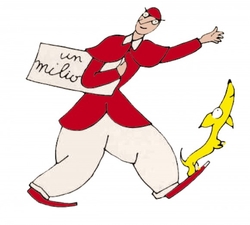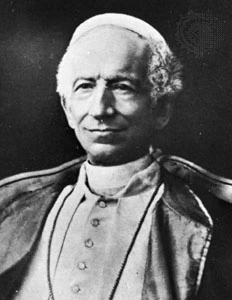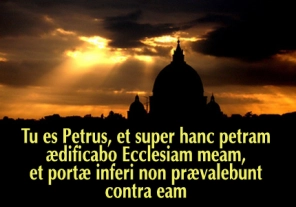
Pieter Bruegel the Elder, “Envy”
There was a time when Envy was considered a sin.
Not a sin whatsoever, but one of the Capital Sins, that is, something serious and requiring the faithful to be alert against it, because it can become a path to damnation.
This was in the past, when priests told one to think of the kingdom to come and insisted on the Beatitudes, and wise people knew that this earthly journey is both too short to ruin it with envy, and too important to run the risk of compromising what comes afterwards.
Then, it changed. Starting from the Sixties, Christianity became less and less “Christian” and more and more “social”. Some Protestants drove this to the extreme, and nowadays the Archbishop of Canterbury will make extraordinary efforts to be only heard on social issues – unless, of course, he talks about the sin of not being “social” enough -.
Not that Catholics are entirely innocent, though. The so-called “Liberation Theology” made a mess of things for many years amidst the spectacular inaction of Paul VI, and even John Paul II slept rather soundly for some five years before finally mowing down the heresy. After Liberation Theology was gone, vague traces of its devastating message remained, more or less masked, in the daily living of many priests and religious, and are present to this day. I can vividly remember the Jesuit coming to the Oratory and asking for money by means of a savage anti-Capitalist rant. Not a penny from me, since you asked.
In fact, through our entire societal fabric envy has become socially accepted. What was once the preserve of the Socialists and the Commies has now become the favourite pastime of all those who, not having an alternative system to propose, have nothing better to do than to criticise the present one. They are “against Capitalism”, but what they are for once the rhetoric is removed remains an enigma.
Other – several priests among them, in my experience – take refuge in a fantasy world; a world in which everything goes as it is supposed to, the cat says hello to the dog and the entire planet is magically recycled into something that, very probably, doesn’t even need Christianity anymore. This is a dangerous fantasy, an escape from reality that doesn’t solve any problem, but creates new ones. First of all, envy.
Let us reflect for a moment on the world our, say, grand-grandparents lived in. Inequalities were, by any conceivable standards, far more pronounced than they are today. Being born outside of the middle-class would severely – if not irremediably – curtail one’s chances of getting to white-collar respectability. Once you were born, most of your choices were already made for you and whilst the one or other always managed to escape the constraints of birth – it is today conveniently forgotten that, say, the Victorian era was an age of was wider social mobility than it is generally accepted – it is unquestionable that the chances were much more unequally distributed, and the ticket drawn at birth a much more important one.
I wonder how people dealt with envy, then. I think they did in the Christian way. They knew that in the end, their passing few decades had their main value in the opportunity to attain eternal life; that it is therefore not necessarily a tragedy, but perhaps even a blessing that one is born, or must live, in a way teaching him patience, perseverance, humility; that the one really in trouble is not the poor laborer, but the arrogant plantation owner, and not the humble miner, but the spoiled and unfeeling daughter of the mine’s owner.
They knew these things, our grand-grandparents. They knew all this, because they were Christians. They weren’t interested in making of this world a paradise, and were under no illusion that the cat would magically start to say hello to the dog. Most of all, they knew about the power of envy, and had the means to defend themselves against it.
Fast forward to the beginning of the XXI Century, when every religious wants to be a politician. Targeting the rich is fair game, even if the rich – let us not forget this, unpleasant as it is – pay a disproportionate amount toward the functioning of the modern societies whilst a bigger and bigger part of the population pays, actually, nothing at all. Who do you think will be screaming “What Would Jesus Do”? And who do you think will be their favourite target? How Christian it is, to want to take away property? How Christian it is to even talk of “redistribution of wealth”, as if private wealth were something intrinsically available for compulsory redistribution?
I must say that unfortunately, too many among the Church’s rank continue to fuel this creeping, all-pervasive envy tinged with socialism – but in the end the fruit of envy, as socialism itself – . Social slogans bring them easy popularity points, which they desperately need because they have persuaded themselves that they need to be popular. They have, themselves, forgotten Christ, who never pleaded for socialised social security, or for the welfare state, but for the charitable bond between rich and poor, allowing the rich to get to heaven by clothing the poor, and the poor to get to heaven by exercising the virtues mentioned above.
This is no more. The poor think that they have rights on the wealth of the rich, and that it be Christian to expropriate them of their own.When the beatitudes are mentioned, it is generally to make some pacifist propaganda. Mala tempora currunt…
If one would find a slogan for the years of the early XXI century one could find the reverse of Gordon Gekko’s one:
Envy is good.
Mundabor






















You must be logged in to post a comment.